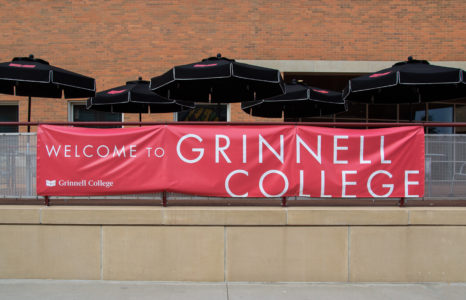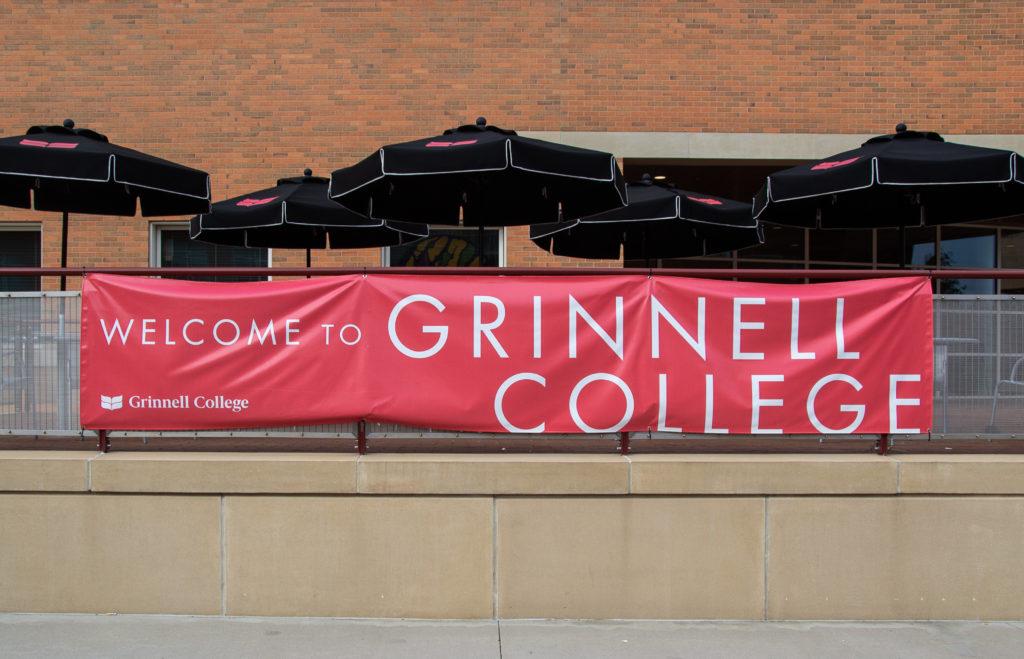This Friday marks the start of the 70th annual Family Weekend here at the College, and although the weekend is a cherished tradition for many students and families, for others, it is a particularly difficult time. Students from a variety of backgrounds including low-income, international, survivors of familial trauma and/or those without ties to a nuclear family face a variety of seldom-considered challenges.
Low-Income Students
For low-income students, high travel and lodging costs aren’t the only factors keeping their families home this weekend. “Not just the cost of traveling, but the time cost for my family,” Joe Fitzpatrick ’21 said, “my parents would have to take off work,” and for many low-income families, missing work is simply not an option.
International Students
As with domestic students, international students face barriers in the astronomical cost of travel and the challenge of family members getting time off work; however, many also face the added challenge of going through the often arduous and expensive process of attaining a visa.
Fit Getahun ’21, an international student from Ethiopia, explained that for his family, in addition to $1,200 to $1,300 for each plane ticket, they also have an additional “$500 per-person at least for the visa.”
All in all, “It’s a lot of ifs and it’s a lot of money,” Getahun said, and for many like English international student Anita Hill ’21, having family come out “for a weekend, for that distance, just doesn’t make sense at all.”
Trauma and Estrangement
However, the experiences of those who might struggle with Family Weekend are not monolithic. While many wish their family could visit, for others with histories of trauma and/or those with identities their family doesn’t accept, the possibility of family visiting is not an exciting one. “Being around my parent is an experience that makes me vastly uncomfortable, [I don’t] feel like I can be myself and [I’m] subjected to many rules and social codes that [go] against my way of living,” said Harley Rivers ’19.
Rivers explained, Family Weekend can be a tool that parents with abusive behaviors use to maintain contact.
“If it’s not completely explicit, it’s still implicitly known that if you don’t allow [family members] to see you, then you will not get financial assistance from your parents, which for most people here means you will not be able to go to college,” Rivers said.
This reality forces students into situations where the College becomes the leverage families can use to maintain unhealthily and/or abusive relationships.
Loneliness, Frustration and Distrust
Overall, for many Grinnellians, Family Weekend is just another difficult and sad reminder of life circumstances. “It just really sucks when everyone’s family is here and they’re having a good time and yours isn’t,” Fitzpatrick said. “It’s just kinda like, ‘Oh, damn, I’m too poor.'”
This experience can be particularly common during students’ first semester here when they may not have built a community and support system yet. “First semester when Family Weekend happened, I couldn’t make sense of it. I didn’t understand,” said Off-Campus Senator Carrie Stallings ’19. “I was mad at the people and the families — everybody. And I was just pissed off and sad and disappointed and all these things,” said Stallings, who added that she feels this can be even harder as a student of color who perceives that most of the families attending are white.
Structural Barriers
Despite their frustration, students recognize that in many ways, the problems of Family Weekend are not specific to Family Weekend, but instead part of larger societal problems that impact their lives everywhere. Stallings explained she isn’t mad at the families here and appreciates Family Weekend. “It’s just that I can see the skeleton of everything that’s making sure their families are there and mine isn’t,” she said.
This sentiment is for many the crux of the issue. According to multiple students interviewed, many students, particularly those who are low income or estranged from their families, feel the College has done little to acknowledge and address the barriers they face and that leaves Stallings feeling that Family Weekend is not for her family. “That space is not for my father. That space is not for my mother. These spaces are not designed to cater to my family. Cause they know they’re not coming.”
Stallings isn’t alone in this frustration. Many students feel betrayed by how much effort and resources are put into an event that, at a school with such large international and low-income populations, so many students and families here simply cannot participate in.
To many, like Fitzpatrick, “it feels like the College doesn’t care unless there’s somebody to impress.” For Hill, the College’s lack of response to her experience compared to those whose families can come “definitely gets to me a lot more than the fact that I can’t have my parents come visit.”
Push For Inclusivity
Michael Sims, director of campus center operations and student activities, who, with Student Affairs Technical Assistant Nancy Guinane, puts on Family Weekend, recognizes the challenges Grinnell faces in making Family Weekend more inclusive. “It is something that is thought about,” Sims said. However, he stresses the complexity of the problem, later continuing, “It’s not just a money issue in order to resolve, there’s a variety of reasons why families are not able to come.”
Sims and Guinane stress that students are welcome and encouraged to come to all events regardless of whether their family is here or not.
“You’re a student here — this is your place,” emphasized Sims.
“[Family Weekend] follows the typical Grinnell form of [being] open to all. We try to eliminate the haves and the have-nots and then that way everything is still free and open for everyone to participate,” Guinane added. “We encourage the entire campus to come to the information desk, get a program, get a schedule and participate in anything they want to.”
But for many students, simply welcoming all to the existing programming is not enough. They see the entire purpose of Family Weekend’s events to be enabling those who can be with their families to enjoy that time together. Without her family, Hill feels uncomfortable attending events created and run for families, saying her invitation to them feels “very contrived and very not aimed at us.”

Photo by Sofia Mendez
Cherished Tradition
Despite its challenges, everyone interviewed agrees that the tradition is an important part of Grinnell. Even those who don’t get to see their family like Joel Choi ’22 feel glad “that Grinnell has Family Weekend” and appreciate that it’s a “great way for parents to check up on their kids.
And for many others, fellow Grinnellians’ responses to the barriers they face have been deeply heartening. During Family Weekend her first year, a mother in town for Family Weekend saw Stallings crying in the Alumni Recitation Hall and stopped to talk with her — nearly four years later the two still keep in touch and Stallings said the experience and the bond it lead to “redefined Family Weekend for me.”
Although Stallings’ experience is certainly not the norm, many students interviewed spoke of how they had been invited to spend time with their friends’ families and how that can, in Getahun’s words, “go a long way for a person who is homesick!”
Possible Improvements
Regardless of how widespread these individual acts of kindness are, changes are still needed to address the structural barriers that negatively impact students’ experiences of Family Weekend.
Part of the solution could be modeled by the programming the Office of International Student Affairs does to foster community here. Getahun, Hill and Paul Chan ’21, an international student from Myanmar, all separately felt the programming put on by the Office, in particular, the “Friends of International Students” program does wonders to create support systems and community.
Hill thinks programming specifically designed for students whose parents can’t make it to Family Weekend would significantly help in making the tradition less exclusionary.
And for Stallings, the value of that programming would not just be that it gives students whose families aren’t here something to do, but that their peers and the College would acknowledge their experience. “Just to even acknowledge, ‘Hey, we know there are a lot of students who really aren’t getting anything out of this event, … [do] everything they can to avoid it, [do not] want to look at it — [get] really sad when they do.’ Just something to acknowledge that.”



































































